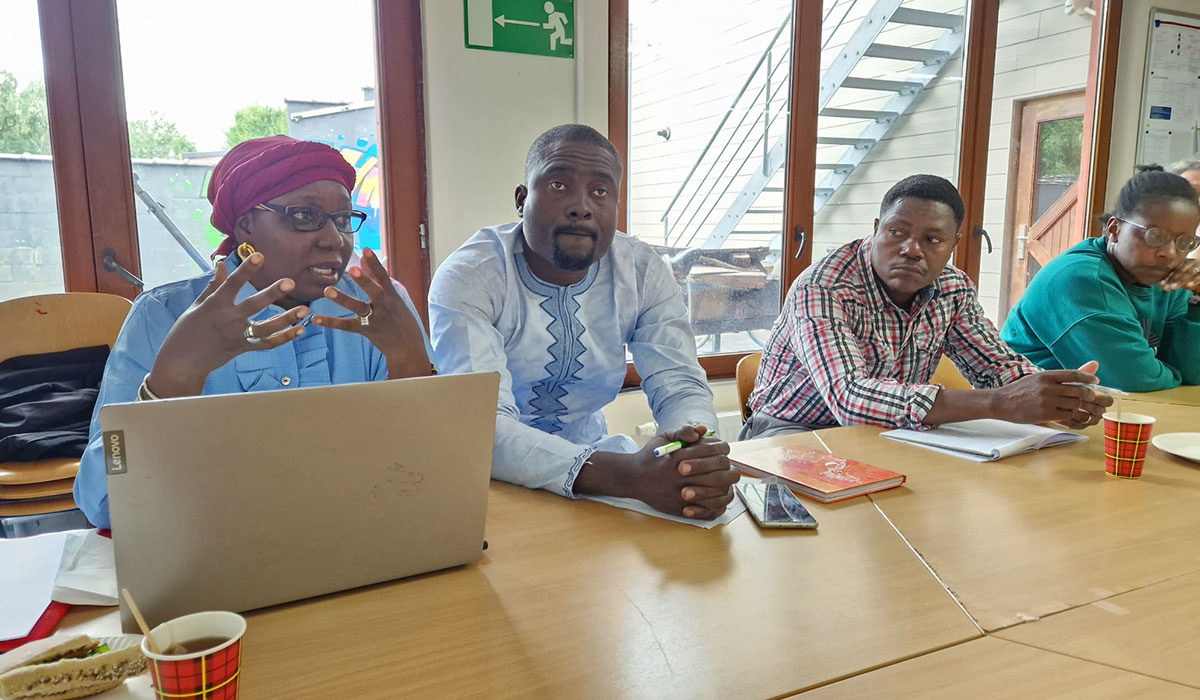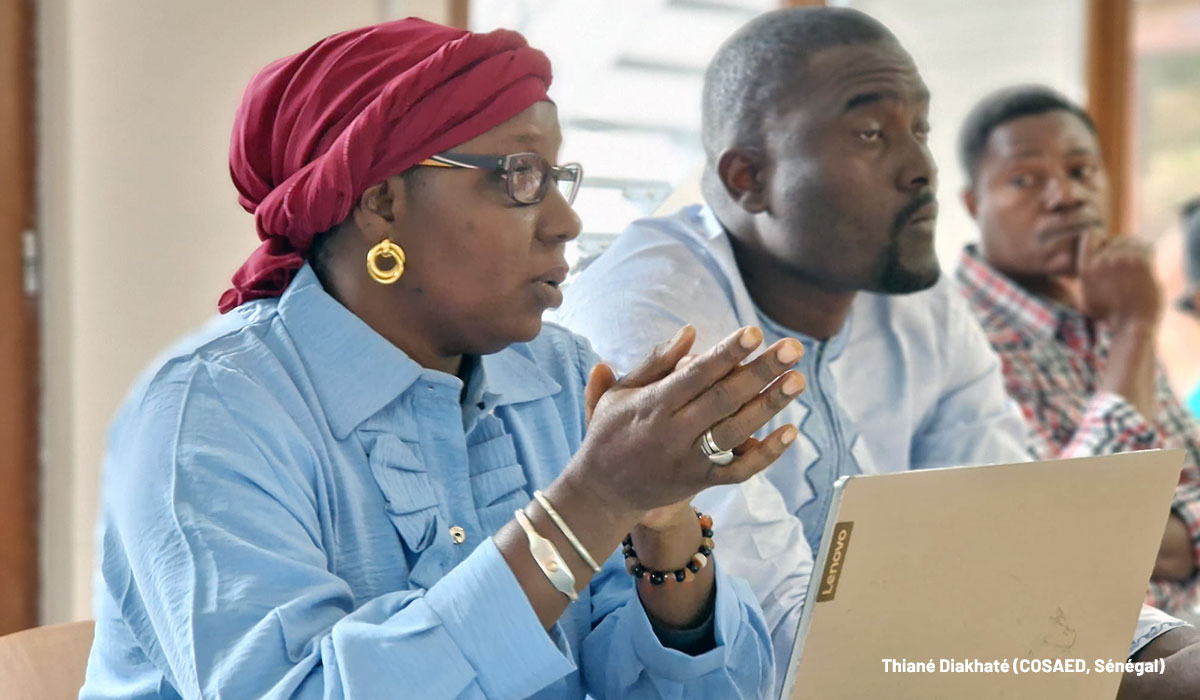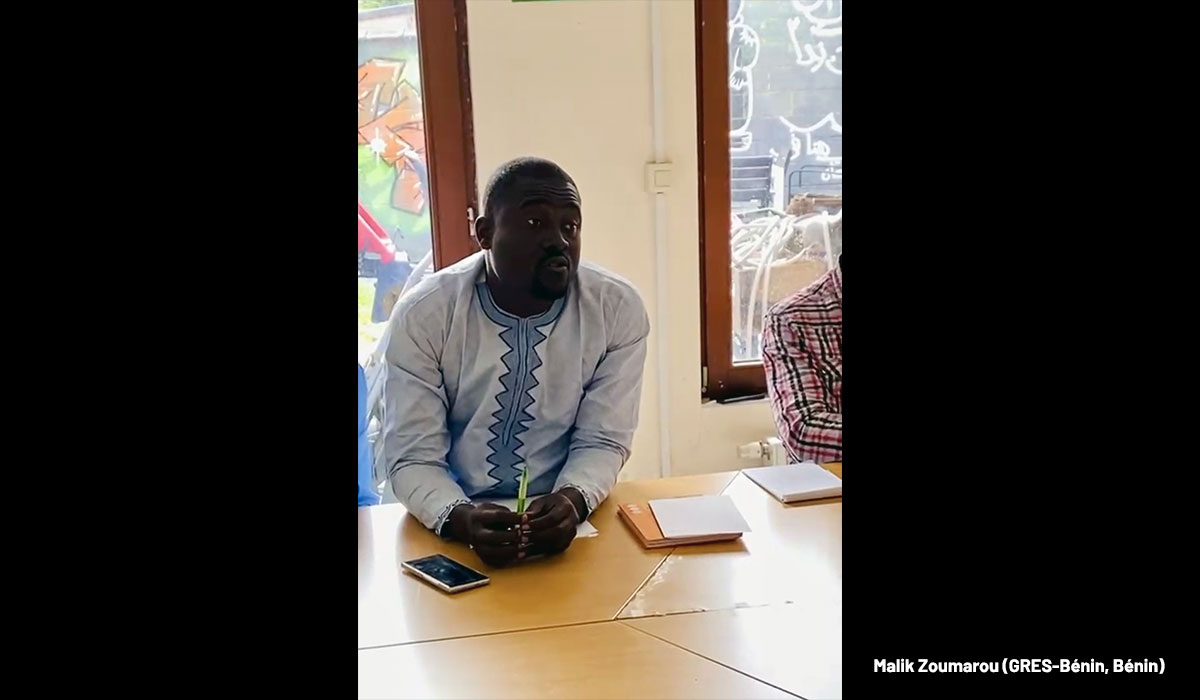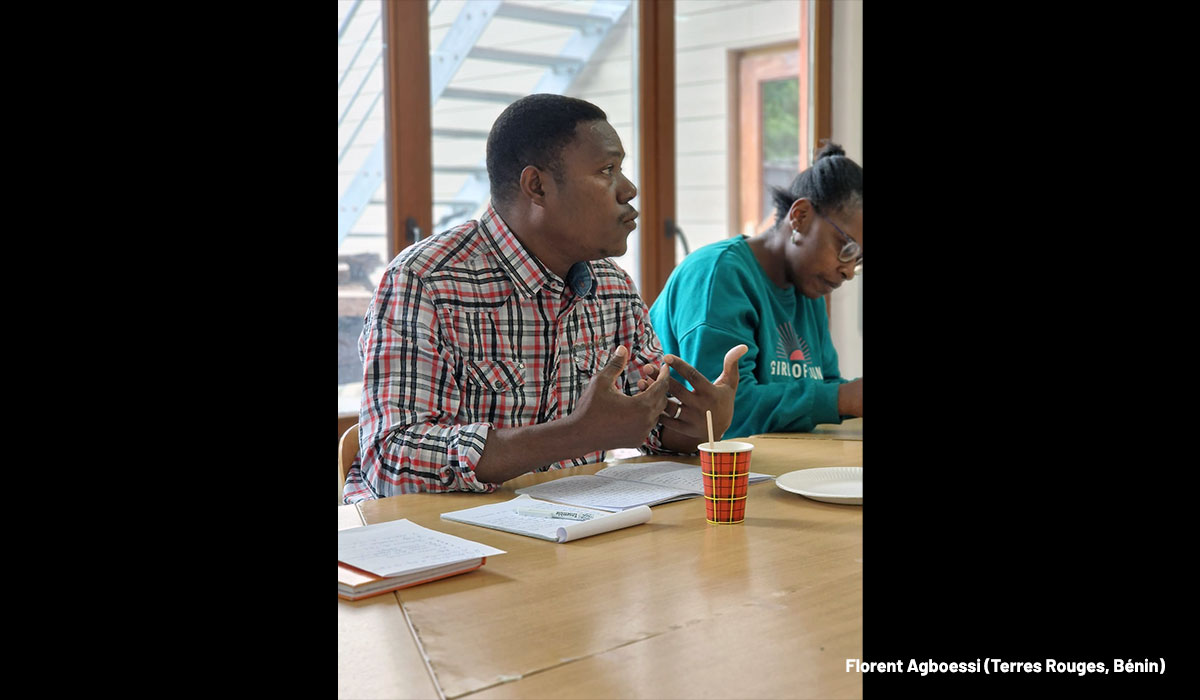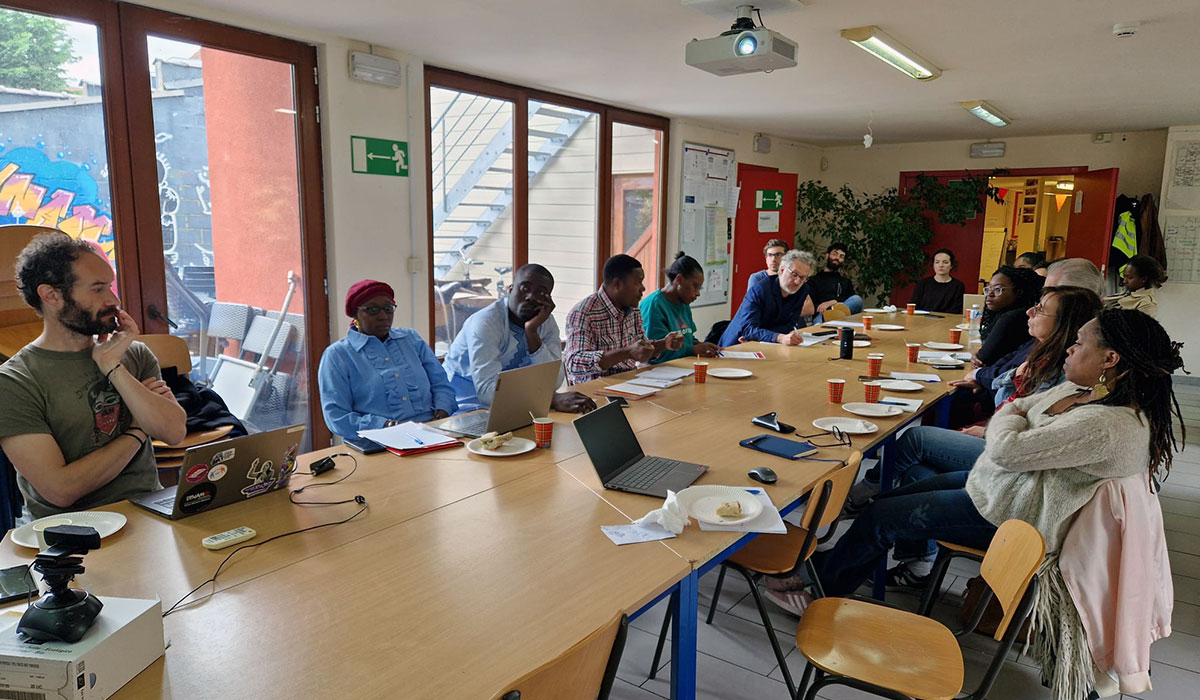Hybrid seminar “Children in Street Situations – Support Practices in Benin and Senegal”
Brussels, Monday, May 27, 2025. Dynamo International organised the hybrid seminar “Children in Street Situations – Support Practices in Benin and Senegal”
As part of its activities, Dynamo International was pleased to host two social street workers from Benin and one from Senegal for a professional visit to Belgium in May and June. This visit, focused on the exchange of practices and strengthening skills in social street work, is organised with the support of Wallonie-Bruxelles International.
Through three field testimonies, the seminar highlighted various aspects of social street work in Benin and Senegal, as well as the realities faced by social workers and the children in street situations they support. Topics discussed included the importance of collaboration among stakeholders, the pooling of practices, the creation of synergies, the specific situations of girls, family reintegration, family awareness, the stigmatisation faced by children and professionals, and the need for recognition and support for structures by the state.
Engaged testimonies from the field
- Thiané Diakhaté (COSAED, Senegal)
Thiané, president of the Ndeyou Daara association, literally “mothers of the talibés,” shared her experience as a social street worker in the Tambacounda region of Senegal. Ndeyou Daara brings together women committed to supporting talibé children through a mentoring system, as well as in prevention, promotion, and protection activities for vulnerable girls.
Ndeyou Daara is part of COSAED, a collective that includes about thirty structures supporting children and youth in difficulty and coordinates social street work in Senegal. COSAED is a member of Dynamo International’s Street Workers Network. In Tambacounda, street work is organised around marauding to identify, guide, and support children in street situations. Thiané discussed the challenges faced: poverty, violence, migration, parental, institutional, and community neglect.
A central goal for street social workers in the region is to reduce the rate of child begging. This involves welcoming children into structures, providing vocational training for girls, directly raising family awareness, and supporting the creation of income-generating activities.
Thiané emphasized the resilience of field teams and the importance of genuine synergy among all involved stakeholders. In Senegal, the Educational Action in Open Environment services (AEMO), attached to each regional or departmental court, also play a significant role in child protection. Close coordination among various actors, whether from the state or civil society, is essential to ensure effective care for children. This collaboration is structured in particular through the Departmental Child Protection Committees, which have proven to be especially effective in the Tambacounda region.
- Malik Zoumarou (GRES-Benin, Benin)
A trained lawyer, Malik is involved in a collective of street social workers in Benin, working for the rights of children in situations of exclusion. His work in the cities of Cotonou, Abomey-Calavi, and Allada has allowed him to identify three profiles of children in street situations :
- Those who wander during the day but return home at night;
- Those who refuse to return to their families;
- Those who were born and live in the street without family references.
At GRES-Benin, the work primarily focuses on prevention: daily presence, building trust, individualised support. Malik expressed the lack of recognition for street social workers, both by the state and the community. The lack of information fuels the stigmatisation and marginalisation of both children in street situations and professionals, who are sometimes accused of contributing to the persistence of this phenomenon.
He presented the CAPI project, launched in 2024, aiming to guarantee vulnerable children and youth access to their rights and harmonious social, family, and professional integration. This project, complementary to Dynamo International’s DGD Programme, carries the hope of better institutional recognition of the social street worker profession in Benin.
- Florent Agboessi (Terres Rouges, Benin)
For over 13 years, Florent has been supporting youth in street situations in Cotonou with Terres Rouges Benin. He primarily works in the Dantokpa market, a very busy public space where many children in street situations are visible: exploited in small jobs during the day, victims of pimping at night, especially girls.
Terres Rouges’ street social work is structured around a prevention team and care facilities: outreach, residential center, vocational training. Florent emphasised the importance of parental and community awareness, with concrete actions like the creation of a “parents’ school” to address children’s rights and duties, the realities of the street, and contraception.
He also pointed out the growing disengagement of the Beninese state in social policies and the low funding of structures. This observation once again highlights the essential role of child protection networks, which help identify priorities, share tools and practices, and develop collective strategies.
A seminar rooted in children’s rights

This seminar is part of the 2025 program of the Children’s Rights Platform in International Cooperation (PKIO), under the theme “Leave No One Behind.” This principle, stemming from the 2030 Agenda for Sustainable Development, calls for leaving no one behind in policies combating poverty, discrimination, and exclusion.
It was a valuable opportunity to hear the voices of three committed professionals, to better understand the realities faced by street children in Benin and Senegal, and to collectively reflect on concrete and supportive responses.

